Shows
 History of Philosophy Without Any GapsHoP 464 Howard Hotson on the Republic of LettersIn this interview we learn more about the Republic of Letters: its importance for the history of ideas, it geographic breadth, who was involved, and the contributions of figures including Leibniz and Hartlib.
2025-03-0242 min
History of Philosophy Without Any GapsHoP 464 Howard Hotson on the Republic of LettersIn this interview we learn more about the Republic of Letters: its importance for the history of ideas, it geographic breadth, who was involved, and the contributions of figures including Leibniz and Hartlib.
2025-03-0242 min Rabbitt Stew ComicsEpisode 493Comic Reviews: DC DC Power: Rise of the Power Company 1 by Brandon Thomas, Charles Stewart III, Anthony Fowler Jr.; Zipporah Smith, Kelsey Ramsay, Francesco Segala; John Jennings, Caanan White, Atagun Ilhan, Andrew Dalhouse; Vita Ayala, Ray-Anthony Height, Chris Sotomayor DC’s Lex and the City 1 by Sina Grace, Nick Filardi; Maggie Tokuda-Hall, Leslie Hung, Rachael Cohen; Jonathan Rivera, Michael Avon Oeming, Nick Filardi; Charles Skaggs, Serg Acuna, Alex Guimaraes; Brendan Hay, Stephen Byrne; Sabrina Futch, M.L. Sanapo, Arif Prianto; Callie Miller, Lisa Sterle, Marissa Louise; Dave Wielgosz, Howard Porter, Hi-Fi Superman: Lex Luthor Special by Joshua Williamson, Ed...2025-02-082h 38
Rabbitt Stew ComicsEpisode 493Comic Reviews: DC DC Power: Rise of the Power Company 1 by Brandon Thomas, Charles Stewart III, Anthony Fowler Jr.; Zipporah Smith, Kelsey Ramsay, Francesco Segala; John Jennings, Caanan White, Atagun Ilhan, Andrew Dalhouse; Vita Ayala, Ray-Anthony Height, Chris Sotomayor DC’s Lex and the City 1 by Sina Grace, Nick Filardi; Maggie Tokuda-Hall, Leslie Hung, Rachael Cohen; Jonathan Rivera, Michael Avon Oeming, Nick Filardi; Charles Skaggs, Serg Acuna, Alex Guimaraes; Brendan Hay, Stephen Byrne; Sabrina Futch, M.L. Sanapo, Arif Prianto; Callie Miller, Lisa Sterle, Marissa Louise; Dave Wielgosz, Howard Porter, Hi-Fi Superman: Lex Luthor Special by Joshua Williamson, Ed...2025-02-082h 38 Business DailyPutting a financial crash on stageWe explore the ongoing fascination of the Lehman Brothers story.A play - The Lehman Trilogy - is currently being shown in London to five-star reviews.It documents the rise and fall of the financial services firm, which filed for bankruptcy in 2008 - the largest insolvency in history, and considered a defining moment in the global financial crisis. The play has been seen by half a million theatregoers globally - and now Business Daily has been to watch it too. We speak to the cast, adapting playwright, and the audience about...2024-12-1917 min
Business DailyPutting a financial crash on stageWe explore the ongoing fascination of the Lehman Brothers story.A play - The Lehman Trilogy - is currently being shown in London to five-star reviews.It documents the rise and fall of the financial services firm, which filed for bankruptcy in 2008 - the largest insolvency in history, and considered a defining moment in the global financial crisis. The play has been seen by half a million theatregoers globally - and now Business Daily has been to watch it too. We speak to the cast, adapting playwright, and the audience about...2024-12-1917 min In Our Time: PhilosophyComeniusMelvyn Bragg and guests discuss the Czech educator Jan Amos Komenský (1592-1670) known throughout Europe in his lifetime under the Latin version of his name, Comenius. A Protestant and member of the Unity of Brethren, he lived much of his life in exile, expelled from his homeland under the Catholic Counter-Reformation, and he wanted to address the deep antagonisms underlying the wars that were devastating Europe especially The Thirty Years War (1618-1648). A major part of his plan was Universal Education, in which everyone could learn about everything, and better understand each other and so tolerate their religious differences a...2022-06-1656 min
In Our Time: PhilosophyComeniusMelvyn Bragg and guests discuss the Czech educator Jan Amos Komenský (1592-1670) known throughout Europe in his lifetime under the Latin version of his name, Comenius. A Protestant and member of the Unity of Brethren, he lived much of his life in exile, expelled from his homeland under the Catholic Counter-Reformation, and he wanted to address the deep antagonisms underlying the wars that were devastating Europe especially The Thirty Years War (1618-1648). A major part of his plan was Universal Education, in which everyone could learn about everything, and better understand each other and so tolerate their religious differences a...2022-06-1656 min In Our TimeComeniusMelvyn Bragg and guests discuss the Czech educator Jan Amos Komenský (1592-1670) known throughout Europe in his lifetime under the Latin version of his name, Comenius. A Protestant and member of the Unity of Brethren, he lived much of his life in exile, expelled from his homeland under the Catholic Counter-Reformation, and he wanted to address the deep antagonisms underlying the wars that were devastating Europe especially The Thirty Years War (1618-1648). A major part of his plan was Universal Education, in which everyone could learn about everything, and better understand each other and so tolerate their religious differences a...2022-06-1656 min
In Our TimeComeniusMelvyn Bragg and guests discuss the Czech educator Jan Amos Komenský (1592-1670) known throughout Europe in his lifetime under the Latin version of his name, Comenius. A Protestant and member of the Unity of Brethren, he lived much of his life in exile, expelled from his homeland under the Catholic Counter-Reformation, and he wanted to address the deep antagonisms underlying the wars that were devastating Europe especially The Thirty Years War (1618-1648). A major part of his plan was Universal Education, in which everyone could learn about everything, and better understand each other and so tolerate their religious differences a...2022-06-1656 min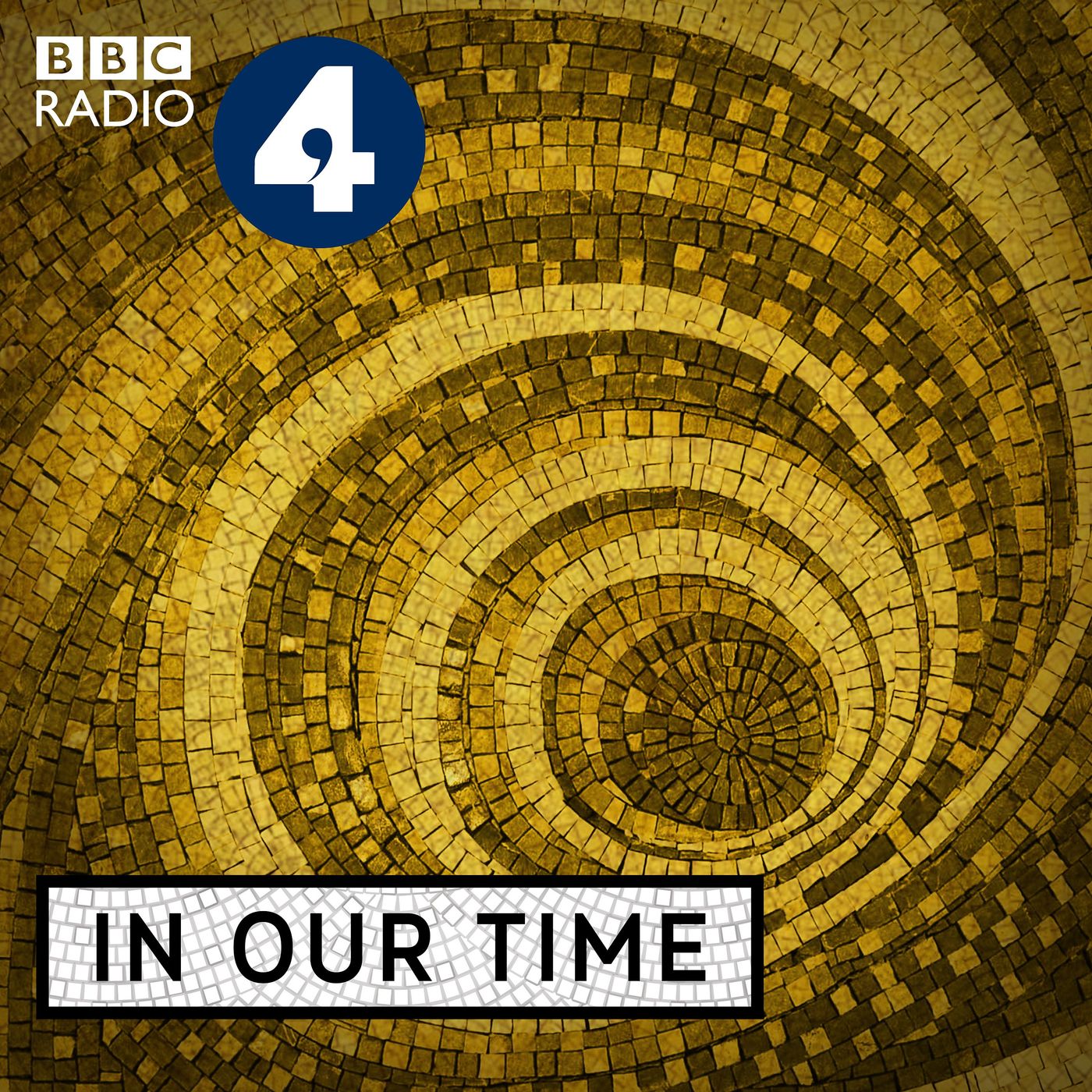 In Our TimeComeniusMelvyn Bragg and guests discuss the Czech educator Jan Amos Komenský (1592-1670) known throughout Europe in his lifetime under the Latin version of his name, Comenius. A Protestant and member of the Unity of Brethren, he lived much of his life in exile, expelled from his homeland under the Catholic Counter-Reformation, and he wanted to address the deep antagonisms underlying the wars that were devastating Europe especially The Thirty Years War (1618-1648). A major part of his plan was Universal Education, in which everyone could learn about everything, and better understand each other and so tolerate their religious differences and l...2022-06-1657 min
In Our TimeComeniusMelvyn Bragg and guests discuss the Czech educator Jan Amos Komenský (1592-1670) known throughout Europe in his lifetime under the Latin version of his name, Comenius. A Protestant and member of the Unity of Brethren, he lived much of his life in exile, expelled from his homeland under the Catholic Counter-Reformation, and he wanted to address the deep antagonisms underlying the wars that were devastating Europe especially The Thirty Years War (1618-1648). A major part of his plan was Universal Education, in which everyone could learn about everything, and better understand each other and so tolerate their religious differences and l...2022-06-1657 min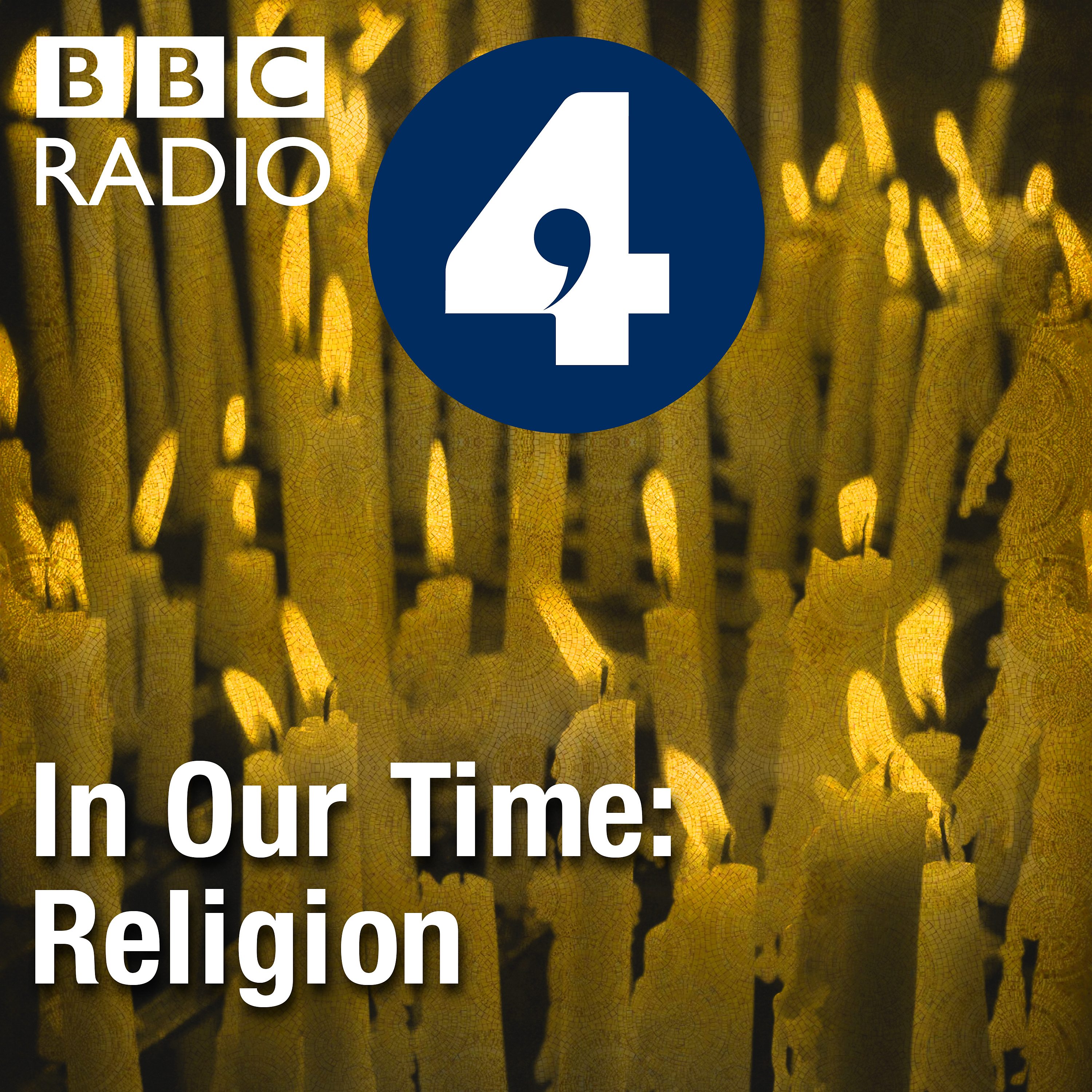 In Our Time: ReligionComeniusMelvyn Bragg and guests discuss the Czech educator Jan Amos Komenský (1592-1670) known throughout Europe in his lifetime under the Latin version of his name, Comenius. A Protestant and member of the Unity of Brethren, he lived much of his life in exile, expelled from his homeland under the Catholic Counter-Reformation, and he wanted to address the deep antagonisms underlying the wars that were devastating Europe especially The Thirty Years War (1618-1648). A major part of his plan was Universal Education, in which everyone could learn about everything, and better understand each other and so tolerate their religious differences a...2022-06-1656 min
In Our Time: ReligionComeniusMelvyn Bragg and guests discuss the Czech educator Jan Amos Komenský (1592-1670) known throughout Europe in his lifetime under the Latin version of his name, Comenius. A Protestant and member of the Unity of Brethren, he lived much of his life in exile, expelled from his homeland under the Catholic Counter-Reformation, and he wanted to address the deep antagonisms underlying the wars that were devastating Europe especially The Thirty Years War (1618-1648). A major part of his plan was Universal Education, in which everyone could learn about everything, and better understand each other and so tolerate their religious differences a...2022-06-1656 min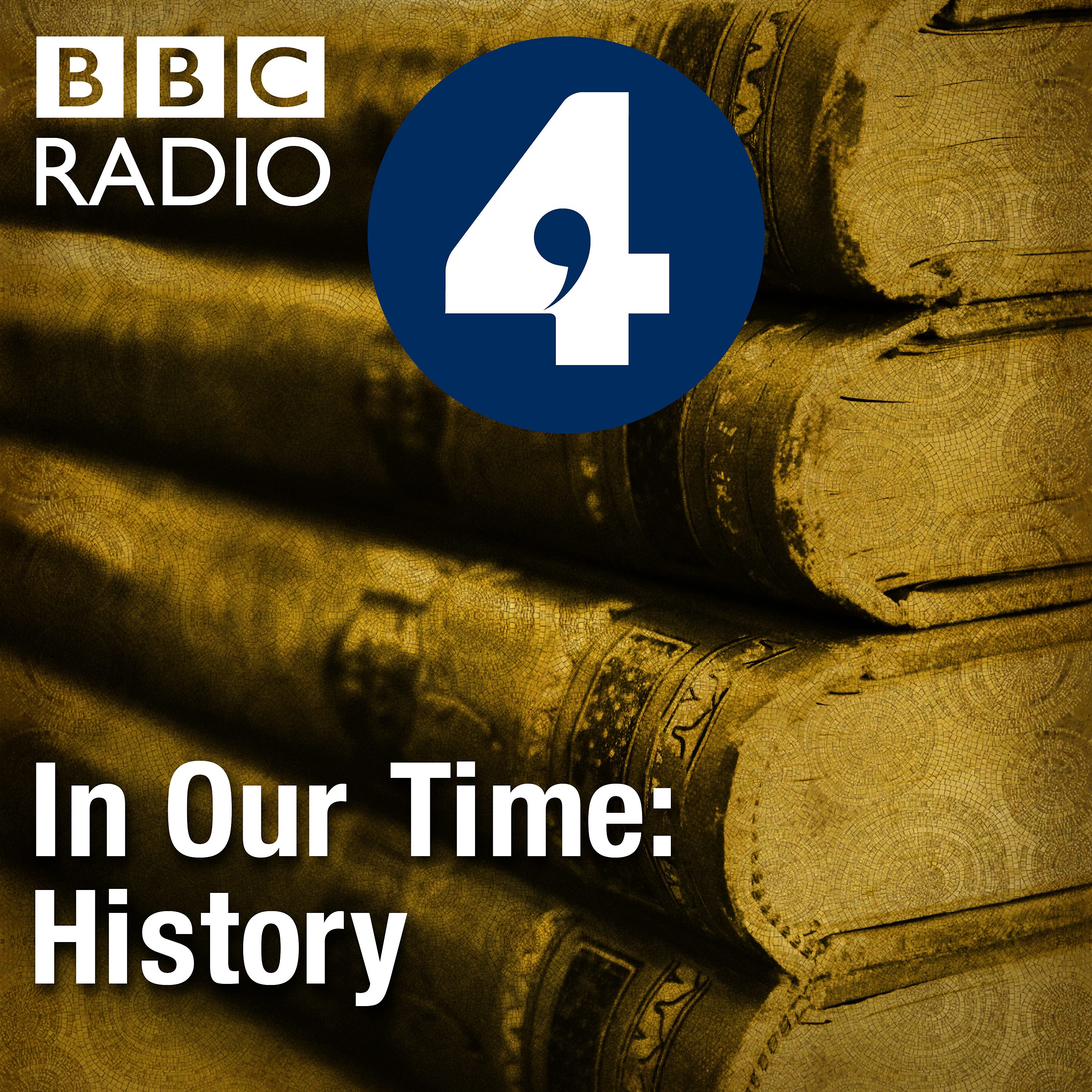 In Our Time: HistoryComeniusMelvyn Bragg and guests discuss the Czech educator Jan Amos Komenský (1592-1670) known throughout Europe in his lifetime under the Latin version of his name, Comenius. A Protestant and member of the Unity of Brethren, he lived much of his life in exile, expelled from his homeland under the Catholic Counter-Reformation, and he wanted to address the deep antagonisms underlying the wars that were devastating Europe especially The Thirty Years War (1618-1648). A major part of his plan was Universal Education, in which everyone could learn about everything, and better understand each other and so tolerate their religious differences a...2022-06-1656 min
In Our Time: HistoryComeniusMelvyn Bragg and guests discuss the Czech educator Jan Amos Komenský (1592-1670) known throughout Europe in his lifetime under the Latin version of his name, Comenius. A Protestant and member of the Unity of Brethren, he lived much of his life in exile, expelled from his homeland under the Catholic Counter-Reformation, and he wanted to address the deep antagonisms underlying the wars that were devastating Europe especially The Thirty Years War (1618-1648). A major part of his plan was Universal Education, in which everyone could learn about everything, and better understand each other and so tolerate their religious differences a...2022-06-1656 min Business DailyBusiness WeeklyOn this edition of Business Weekly, we’re looking at the US inflation rate. It has hit 7% year on year, the largest rise since 1982. Used car prices and food costs are shooting up. We hear from Wells Fargo Economist Sarah Watt House and Gerald Daniels, an Associate Professor of Economics at Howard University who specialises in the economics of inequality.
The BBC’s Ed Butler looks at the recent protests in Kazakhstan and we have a look inside the UK trials into psychedelic drugs for patients suffering with depression. Plus, we browse the shelves of ultra rare whisky, and hear...2022-01-1549 min
Business DailyBusiness WeeklyOn this edition of Business Weekly, we’re looking at the US inflation rate. It has hit 7% year on year, the largest rise since 1982. Used car prices and food costs are shooting up. We hear from Wells Fargo Economist Sarah Watt House and Gerald Daniels, an Associate Professor of Economics at Howard University who specialises in the economics of inequality.
The BBC’s Ed Butler looks at the recent protests in Kazakhstan and we have a look inside the UK trials into psychedelic drugs for patients suffering with depression. Plus, we browse the shelves of ultra rare whisky, and hear...2022-01-1549 min The ForumComenius, a pioneer of lifelong learningTeaching not by rote but through play? That's credited to the 17th-century Czech pastor and thinker called Jan Amos Comenius. Splitting schoolchildren up into year groups? That's Comenius. Universal education for all, rich and poor? That's down to him too. Nearly four centuries ago, Comenius came up with principles of modern education but they were only implemented hundreds of years after his death. That these ideas are now so widely accepted obscures the fact that they were ground-breaking - indeed too radical - in his day.
Comenius lived through turbulent times: the devastating Thirty Year served as the backdrop...2020-11-0539 min
The ForumComenius, a pioneer of lifelong learningTeaching not by rote but through play? That's credited to the 17th-century Czech pastor and thinker called Jan Amos Comenius. Splitting schoolchildren up into year groups? That's Comenius. Universal education for all, rich and poor? That's down to him too. Nearly four centuries ago, Comenius came up with principles of modern education but they were only implemented hundreds of years after his death. That these ideas are now so widely accepted obscures the fact that they were ground-breaking - indeed too radical - in his day.
Comenius lived through turbulent times: the devastating Thirty Year served as the backdrop...2020-11-0539 min Proceedings of the Aristotelian Society18/5/2020: Maria Rosa Antognazza on the Distinction of Kind between Knowledge and BeliefMaria Rosa Antognazza is Professor of Philosophy at King’s College London. Educated at the Catholic University of Milan, she has held research and visiting fellowships in Italy, Germany, Israel, Great Britain and the USA, including a British Academy Postdoctoral Fellowship, a two-year research fellowship from the Leverhulme Trust, and the Leibniz-Professorship at the University of Leipzig (Leibniz’s Alma Mater) in 2016. She served as Head of the King’s Philosophy Department from 2011/12 to 2014/15 and is the current Chair of the British Society for the History of Philosophy. Her research interests lie in the history of philosophy, epistemology, and the ph...2020-05-2654 min
Proceedings of the Aristotelian Society18/5/2020: Maria Rosa Antognazza on the Distinction of Kind between Knowledge and BeliefMaria Rosa Antognazza is Professor of Philosophy at King’s College London. Educated at the Catholic University of Milan, she has held research and visiting fellowships in Italy, Germany, Israel, Great Britain and the USA, including a British Academy Postdoctoral Fellowship, a two-year research fellowship from the Leverhulme Trust, and the Leibniz-Professorship at the University of Leipzig (Leibniz’s Alma Mater) in 2016. She served as Head of the King’s Philosophy Department from 2011/12 to 2014/15 and is the current Chair of the British Society for the History of Philosophy. Her research interests lie in the history of philosophy, epistemology, and the ph...2020-05-2654 min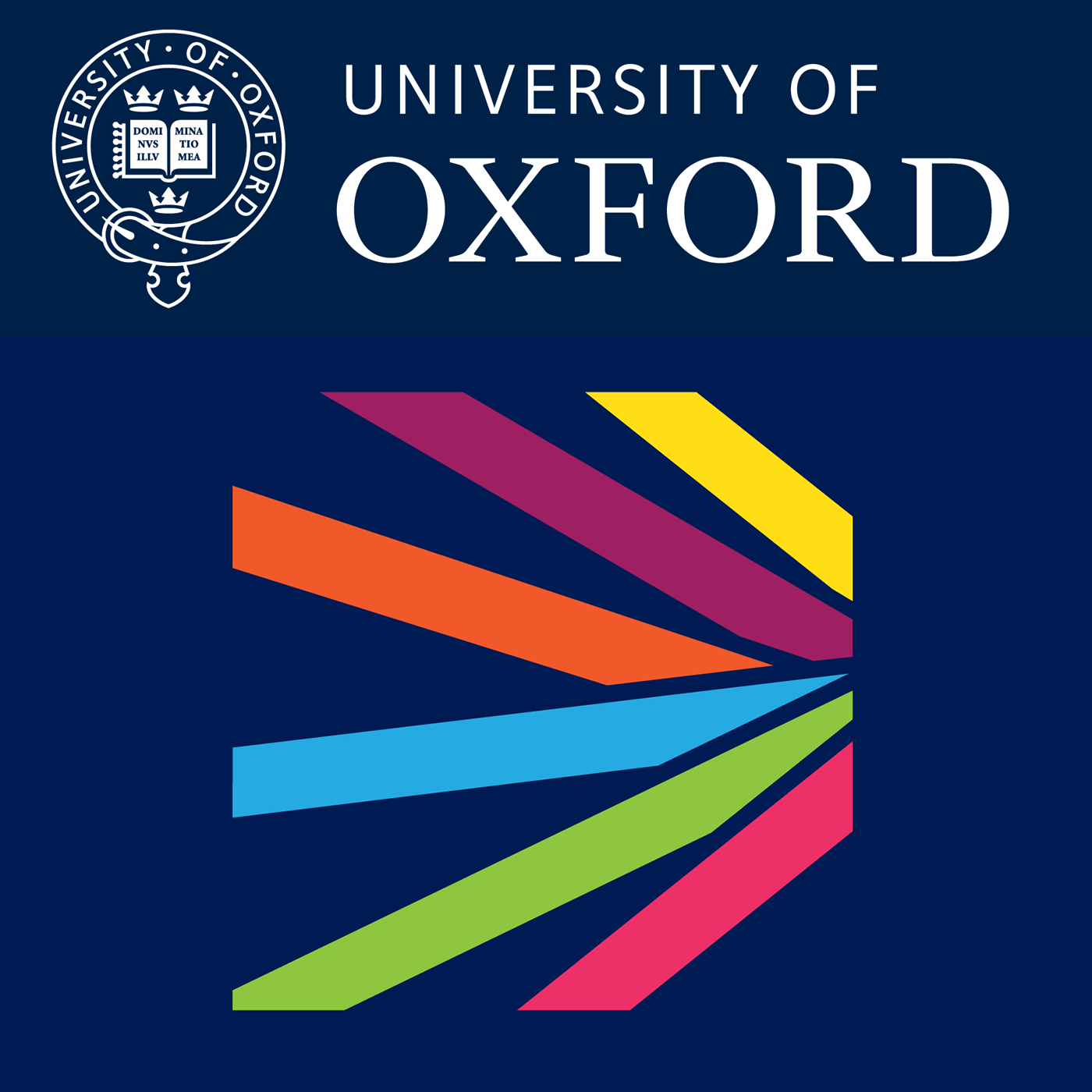 TORCH | The Oxford Research Centre in the HumanitiesAre the Humanities More Digital than the Sciences?A panel discussion with Howard Hotson, Andrew Prescott, Dave De Roure and Heather Viles Are the Humanities More Digital than the Sciences? A panel discussion with Howard Hotson, Andrew Prescott, Dave De Roure and Heather Viles. Part of the Humanities and the Digital Age TORCH 2016 Headline Series. The presumption is often that the relationship between the humanities and sciences will be one-way, and that it will be the humanities learning from sciences. But what can sciences learn from the way that the humanities are using digital output for their research?2016-03-0248 min
TORCH | The Oxford Research Centre in the HumanitiesAre the Humanities More Digital than the Sciences?A panel discussion with Howard Hotson, Andrew Prescott, Dave De Roure and Heather Viles Are the Humanities More Digital than the Sciences? A panel discussion with Howard Hotson, Andrew Prescott, Dave De Roure and Heather Viles. Part of the Humanities and the Digital Age TORCH 2016 Headline Series. The presumption is often that the relationship between the humanities and sciences will be one-way, and that it will be the humanities learning from sciences. But what can sciences learn from the way that the humanities are using digital output for their research?2016-03-0248 min TORCH | The Oxford Research Centre in the HumanitiesAre the Humanities More Digital than the Sciences?A panel discussion with Howard Hotson, Andrew Prescott, Dave De Roure and Heather Viles Are the Humanities More Digital than the Sciences? A panel discussion with Howard Hotson, Andrew Prescott, Dave De Roure and Heather Viles. Part of the Humanities and the Digital Age TORCH 2016 Headline Series. The presumption is often that the relationship between the humanities and sciences will be one-way, and that it will be the humanities learning from sciences. But what can sciences learn from the way that the humanities are using digital output for their research?2016-03-0248 min
TORCH | The Oxford Research Centre in the HumanitiesAre the Humanities More Digital than the Sciences?A panel discussion with Howard Hotson, Andrew Prescott, Dave De Roure and Heather Viles Are the Humanities More Digital than the Sciences? A panel discussion with Howard Hotson, Andrew Prescott, Dave De Roure and Heather Viles. Part of the Humanities and the Digital Age TORCH 2016 Headline Series. The presumption is often that the relationship between the humanities and sciences will be one-way, and that it will be the humanities learning from sciences. But what can sciences learn from the way that the humanities are using digital output for their research?2016-03-0248 min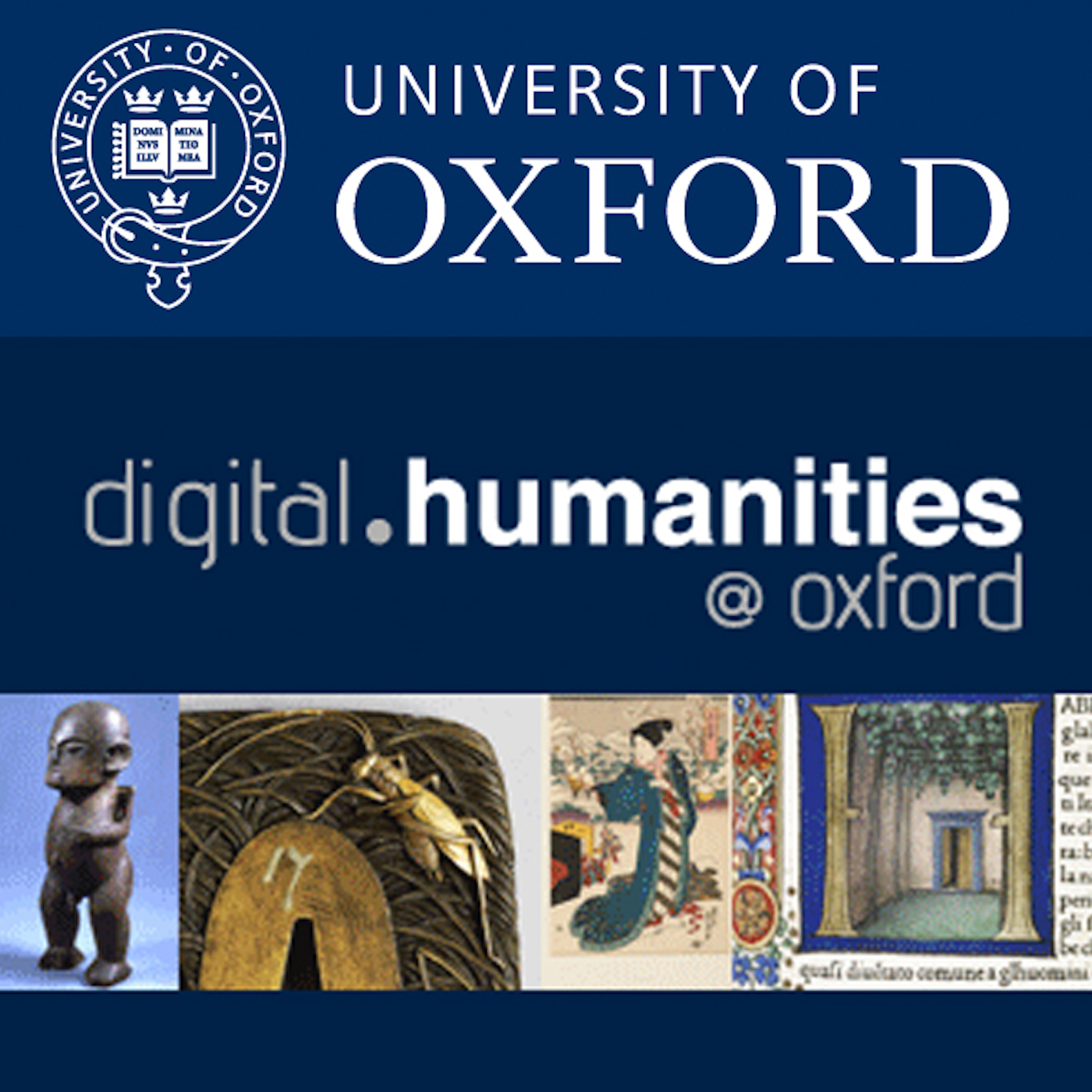 Digital Humanities at Oxford Summer SchoolNetworking⁴: Reassembling the Republic of Letters, 1500-1800Howard Hotson, Faculty of History, University of Oxford, gives a talk for the DHOXSS 2015. Between 1500 and 1800, the development of increasingly affordable, reliable, and accessible postal systems allowed scholars to scatter correspondence across and beyond Europe. This epistolary exchange knit together the self-styled 'republic of letters', an international, knowledge-based civil society central to that era's intellectual breakthroughs and formative for many of modern Europe's values and institutions. Despite its importance, the republic of letters remains poorly integrated into early modern European intellectual history, and this primarily for one simple reason: its core practice of creating communities by dispersing archives of manuscripts...2015-08-1042 min
Digital Humanities at Oxford Summer SchoolNetworking⁴: Reassembling the Republic of Letters, 1500-1800Howard Hotson, Faculty of History, University of Oxford, gives a talk for the DHOXSS 2015. Between 1500 and 1800, the development of increasingly affordable, reliable, and accessible postal systems allowed scholars to scatter correspondence across and beyond Europe. This epistolary exchange knit together the self-styled 'republic of letters', an international, knowledge-based civil society central to that era's intellectual breakthroughs and formative for many of modern Europe's values and institutions. Despite its importance, the republic of letters remains poorly integrated into early modern European intellectual history, and this primarily for one simple reason: its core practice of creating communities by dispersing archives of manuscripts...2015-08-1042 min Digital Humanities at Oxford Summer SchoolElectrifying the 'Via Lucis': communication technologies and republics of letters, past, present and futureA talk given by Howard Hotson, University of Oxford, at DHOxSS 2014. In his Latin treatise, "Via Lucis (The Way of Light)", the great Moravian pedagogue and pansophist, Jan Amos Comenius (1592-1670), offered an account of the whole of human history conceived as the gradual spread of communication. Organised in terms of the six days of creation, his narrative culminates in the expectation of a dawning seventh day of rest, in which a universal college will use universal communication to gather universal books as the basis for universal education. The most important product of Comenius's brief stay in England during the...2014-07-2354 min
Digital Humanities at Oxford Summer SchoolElectrifying the 'Via Lucis': communication technologies and republics of letters, past, present and futureA talk given by Howard Hotson, University of Oxford, at DHOxSS 2014. In his Latin treatise, "Via Lucis (The Way of Light)", the great Moravian pedagogue and pansophist, Jan Amos Comenius (1592-1670), offered an account of the whole of human history conceived as the gradual spread of communication. Organised in terms of the six days of creation, his narrative culminates in the expectation of a dawning seventh day of rest, in which a universal college will use universal communication to gather universal books as the basis for universal education. The most important product of Comenius's brief stay in England during the...2014-07-2354 min TORCH | The Oxford Research Centre in the HumanitiesScience and the HumanitiesAre the Humanities and the Sciences fundamentally different? Or do they share roots, values, aspirations and a common, contemporary predicament? Are the Humanities and the Sciences fundamentally different? Or do they share roots, values, aspirations and a common, contemporary predicament?Presenter: Howard Hotson, Professor of Early Modern Intellectual History, University of Oxford (Chair, Cultures of Knowledge network, TORCH)Respondents: Ian Walmsley, Pro-Vice-Chancellor, Hooke Professor of Experimental Physics, University of Oxford Mark Pagel, Professor and Head of the Bioinformatics Laboratory, University of ReadingChair: Sally Shuttleworth, Professor of English, University of OxfordThis seminar is part of "Humanities and the Public Good", a...2014-03-041h 16
TORCH | The Oxford Research Centre in the HumanitiesScience and the HumanitiesAre the Humanities and the Sciences fundamentally different? Or do they share roots, values, aspirations and a common, contemporary predicament? Are the Humanities and the Sciences fundamentally different? Or do they share roots, values, aspirations and a common, contemporary predicament?Presenter: Howard Hotson, Professor of Early Modern Intellectual History, University of Oxford (Chair, Cultures of Knowledge network, TORCH)Respondents: Ian Walmsley, Pro-Vice-Chancellor, Hooke Professor of Experimental Physics, University of Oxford Mark Pagel, Professor and Head of the Bioinformatics Laboratory, University of ReadingChair: Sally Shuttleworth, Professor of English, University of OxfordThis seminar is part of "Humanities and the Public Good", a...2014-03-041h 16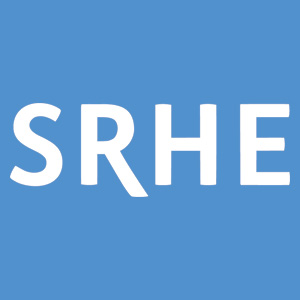 SRHE (Society for Research into Higher Education) Conference And Network PodcastsBig Business at the Heart of the System: Understanding the Global University CrisisProfessor Howard Hotson keynote speaker at SRHE Annual Research Conference 2012 (Audio length - 1:00:59)2012-12-121h 00
SRHE (Society for Research into Higher Education) Conference And Network PodcastsBig Business at the Heart of the System: Understanding the Global University CrisisProfessor Howard Hotson keynote speaker at SRHE Annual Research Conference 2012 (Audio length - 1:00:59)2012-12-121h 00 SRHE (Society for Research into Higher Education) Conference And Network PodcastsBig Business at the Heart of the System: Understanding the Global University CrisisProfessor Howard Hotson keynote speaker at SRHE Annual Research Conference 2012 (Audio length - 1:00:59)2012-12-121h 00
SRHE (Society for Research into Higher Education) Conference And Network PodcastsBig Business at the Heart of the System: Understanding the Global University CrisisProfessor Howard Hotson keynote speaker at SRHE Annual Research Conference 2012 (Audio length - 1:00:59)2012-12-121h 00 In Our Time: HistoryRudolph IIMelvyn Bragg and guests discuss the coterie of brilliant thinkers gathered in 16th century Prague by the melancholic emperor Rudolph II. In 1606 the Archdukes of Vienna declared: “His majesty is interested only in wizards, alchemists, Kabbalists and the like, sparing no expense to find all kinds of treasures, learn secrets and use scandalous ways of harming his enemies…He also has a whole library of magic books. He strives all the time to eliminate God completely so that he may in future serve a different master.”The subject of this coruscating attack was the Holy Roman Emperor, Rudolf II, and his co...2008-01-3142 min
In Our Time: HistoryRudolph IIMelvyn Bragg and guests discuss the coterie of brilliant thinkers gathered in 16th century Prague by the melancholic emperor Rudolph II. In 1606 the Archdukes of Vienna declared: “His majesty is interested only in wizards, alchemists, Kabbalists and the like, sparing no expense to find all kinds of treasures, learn secrets and use scandalous ways of harming his enemies…He also has a whole library of magic books. He strives all the time to eliminate God completely so that he may in future serve a different master.”The subject of this coruscating attack was the Holy Roman Emperor, Rudolf II, and his co...2008-01-3142 min In Our Time: CultureRudolph IIMelvyn Bragg and guests discuss the coterie of brilliant thinkers gathered in 16th century Prague by the melancholic emperor Rudolph II. In 1606 the Archdukes of Vienna declared: “His majesty is interested only in wizards, alchemists, Kabbalists and the like, sparing no expense to find all kinds of treasures, learn secrets and use scandalous ways of harming his enemies…He also has a whole library of magic books. He strives all the time to eliminate God completely so that he may in future serve a different master.”The subject of this coruscating attack was the Holy Roman Emperor, Rudolf II, and hi...2008-01-3142 min
In Our Time: CultureRudolph IIMelvyn Bragg and guests discuss the coterie of brilliant thinkers gathered in 16th century Prague by the melancholic emperor Rudolph II. In 1606 the Archdukes of Vienna declared: “His majesty is interested only in wizards, alchemists, Kabbalists and the like, sparing no expense to find all kinds of treasures, learn secrets and use scandalous ways of harming his enemies…He also has a whole library of magic books. He strives all the time to eliminate God completely so that he may in future serve a different master.”The subject of this coruscating attack was the Holy Roman Emperor, Rudolf II, and hi...2008-01-3142 min In Our TimeRudolph IIMelvyn Bragg and guests discuss the coterie of brilliant thinkers gathered in 16th century Prague by the melancholic emperor Rudolph II. In 1606 the Archdukes of Vienna declared: “His majesty is interested only in wizards, alchemists, Kabbalists and the like, sparing no expense to find all kinds of treasures, learn secrets and use scandalous ways of harming his enemies…He also has a whole library of magic books. He strives all the time to eliminate God completely so that he may in future serve a different master.”The subject of this coruscating attack was the Holy Roman Emperor, Rudolf II, and hi...2008-01-3142 min
In Our TimeRudolph IIMelvyn Bragg and guests discuss the coterie of brilliant thinkers gathered in 16th century Prague by the melancholic emperor Rudolph II. In 1606 the Archdukes of Vienna declared: “His majesty is interested only in wizards, alchemists, Kabbalists and the like, sparing no expense to find all kinds of treasures, learn secrets and use scandalous ways of harming his enemies…He also has a whole library of magic books. He strives all the time to eliminate God completely so that he may in future serve a different master.”The subject of this coruscating attack was the Holy Roman Emperor, Rudolf II, and hi...2008-01-3142 min